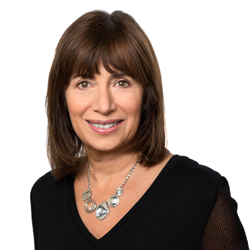
 Interview Guest: Ellyn Bader, Ph.D., is a co-founder of The Developmental Model of Couples Therapy, which integrates attachment theory and differentiation. Through her work at The Couples Institute, she has specialized in helping couples transform their relationships since 1984.
Interview Guest: Ellyn Bader, Ph.D., is a co-founder of The Developmental Model of Couples Therapy, which integrates attachment theory and differentiation. Through her work at The Couples Institute, she has specialized in helping couples transform their relationships since 1984.
The idealized relationship where partners are fused at the hip is not a healthy relationship, as it doesn’t allow for the unique differences of each partner. Bader highlights this fusion as a conflict avoidant stance that happens when one partner feels anxious or uncomfortable and attempts to merge with their spouse.
One way of doing this is becoming more like your partner in hopes of being loved. There’s a deep fear that says, “If I express my needs and have different needs than my partner, I’m going to be abandoned.”
The other conflict avoidant stance is loving your partner at arm’s length. The fear in this stance says, “If I become more open and vulnerable, I’m going to get swallowed up and lose my sense of self.”
As Dr. David Schnarch states in his book entitled Passionate Marriage, “Giving up your individuality to be together is as defeating in the long run as giving up your relationship to maintain your individuality. Either way, you end up being less of a person with less of a relationship.”
Fusion happens when a person is fearful of encountering differences. These can be minor differences including how one spends their time or their hobbies, or major differences such as conflict style and desire for togetherness. The opposite of fusion is differentiation.
The Risk of Growth
Bader describes differentiation as an active process “in which partners define themselves to each other.” Differentiation requires the risk of being open to growth and being honest not only with your partner, but also with yourself.
- If you’re anxious, it could mean realizing that you lean on partner so much that if they become unstable, you both fall down. Your demands on your partner and the way you discuss conflict may be pushing your partner away, which is the very thing you fear.
- If you’re avoidant, it could mean noticing that you neglect your partner’s needs and prioritize yourself over your relationship. As a result, you perpetuate the loneliness you feel.
To grow in your relationship requires a willingness to stand on what Bader calls your “developmental edge” and differentiate yourself as an individual.
What Differentiation Looks Like
In conflict, a differentiated lover can give space to their partner who is emotionally overwhelmed while also remaining close enough to be caring and supportive, but not so close that they lose themselves emotionally. Instead of reacting with overwhelming emotion, a differentiated partner, according to Bader, expresses curiosity about their partner’s emotional state:
“Can you tell me more about what’s going on?”
“Can you tell me about these feelings?”
The more differentiated you are, the less likely you are to take things as personally. As a result, you can soothe yourself or reach out to be soothed by your partner in a helpful way. Instead of saying, “You’re such a jerk. You never care for me,” a differentiated partner would say, “I’m feeling really overwhelmed and lonely. Could you give me a hug?”
To differentiate is to develop a secure way of relating to your partner. This earned security, as highlighted by Bader, is created both internally and developed within the context of a relationship. This requires being authentic with your feelings and needs.
You can cultivate a secure and functioning relationship by recognizing and taking responsibility for your part in creating unhealthy dynamics in your relationship. When you do this, you can then express your needs, desires, and wishes in a way that allows you and your partner to work together to meet each other’s needs.
When both partners are whole, not only is there more flexibility in the marriage, but there is also more intimacy.
If you’d like to learn more about Ellyn Bader and her Developmental Model of Couples Therapy, you can visit her website here.
If you want to build a deeply meaningful relationship full of trust and intimacy, then subscribe below to receive our blog posts directly to your inbox:

